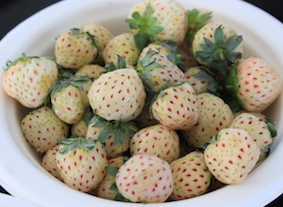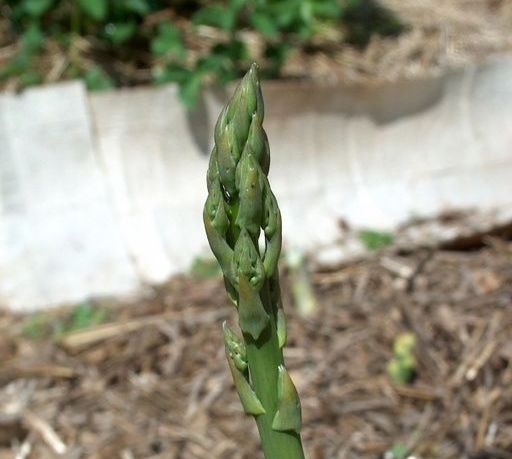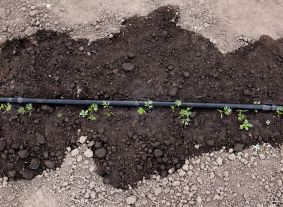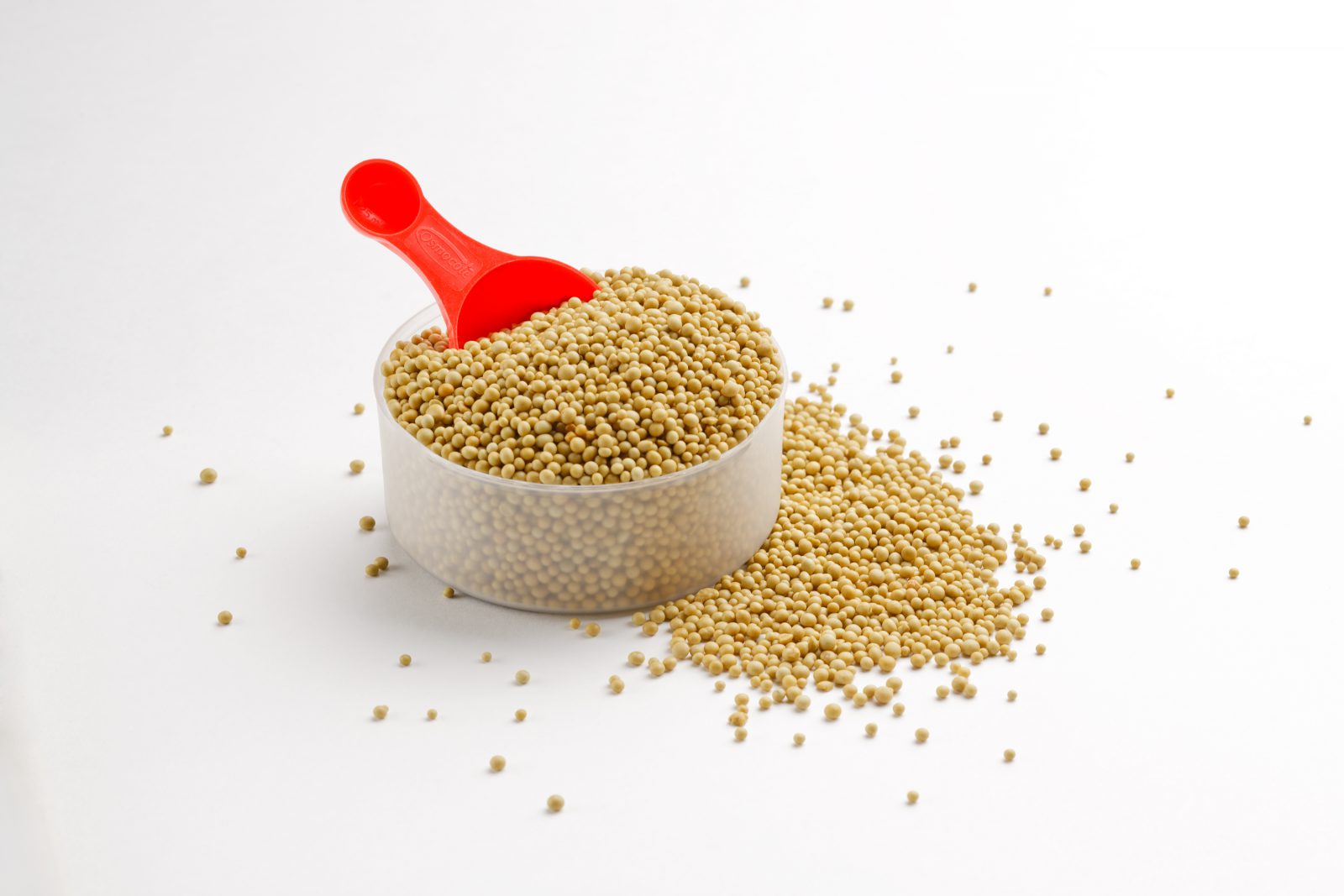How to Grow Hulaberries (White Strawberries)
Views: 22215

Looking for something familiar but different in the fruit category? What you see pictured here is a white strawberry. With the red seeds it sort of looks like a film photograph negative of the red-fleshed, yellow-seeded kind, doesn’t it? But what you’re seeing is real, yellowy-whitish flesh and all. This strawberry is called Hulaberry, and it’s a new variety I saw on display at a trade show of plant breeders earlier this spring. It’s certainly eye-catching, and the novelty of them is what will attract people to buy and grow them. Flavor-wise it has the taste of a mellow pineapple—again, a bit of a novelty.
Imagine the pie or frozen daiquiri you could make with this strawberry!
How to Grow Hulaberries
There are two things to note about growing the Hulaberry:
First, and most importantly, is that Hulaberry needs a regular, red-fleshed strawberry variety planted nearby in order to produce fruit. Of course this means that pollinators such as bees are necessary to transfer pollen from the red to the white berry plant. The company introducing Hulaberry will make sure the white variety is packaged along with a red variety so that proper pollination can occur.
Second, and way less important, is that the Hulaberry plant and fruit are a bit on the small side. This is the kind of plant you’d buy several red-and-white pairs of and plant in one of those tiered strawberry pots.
Other than the pollination requirement, color, and flavor, Hulaberry is pretty much like other strawberries.
Sun and Soil: They require lots of sun and prefer rich soils. Plant Hulaberries about 20 inches apart and be sure the crown of the plant is even with the soil. If it’s above, the plant will dry out easily.
Water and Mulch: Hulaberries need a good amount of water, which means they definitely benefit from mulching.
Compost: Add compost to the soil when planting Hulaberries in the spring, and a sidedressing of compost in subsequent years. Later in summer they’ll send out runners to produce baby plants.
Meet Ellen Wells
When you’re raised on a farm, you can’t help but know a thing or two about gardening. Ellen Wells is our expert on edible gardening.…
Ellen's Recent Posts

Asparagus






